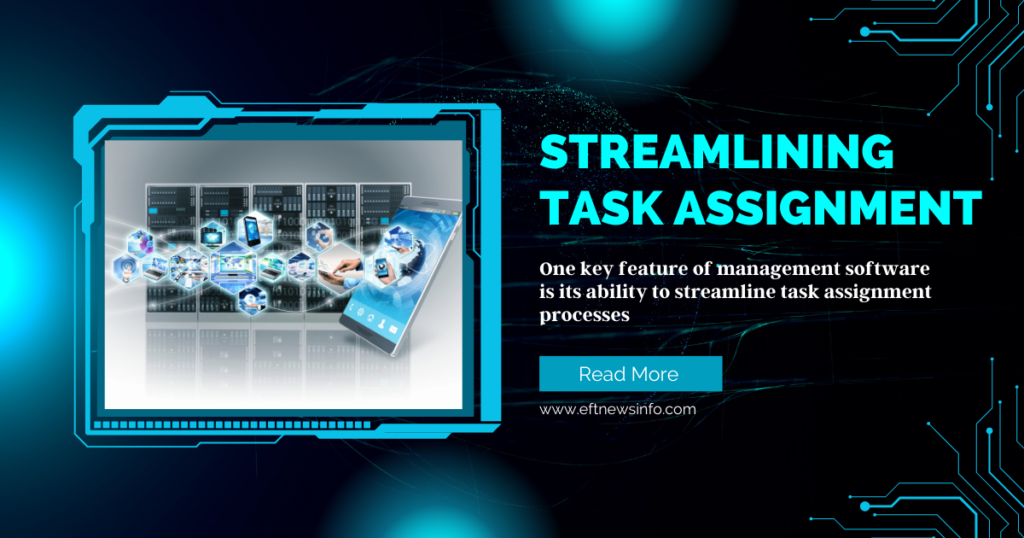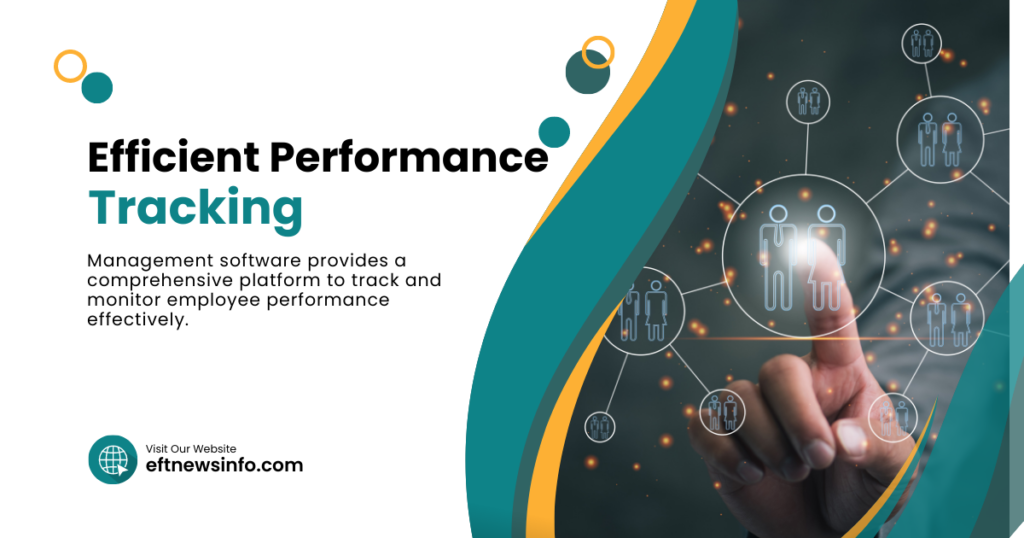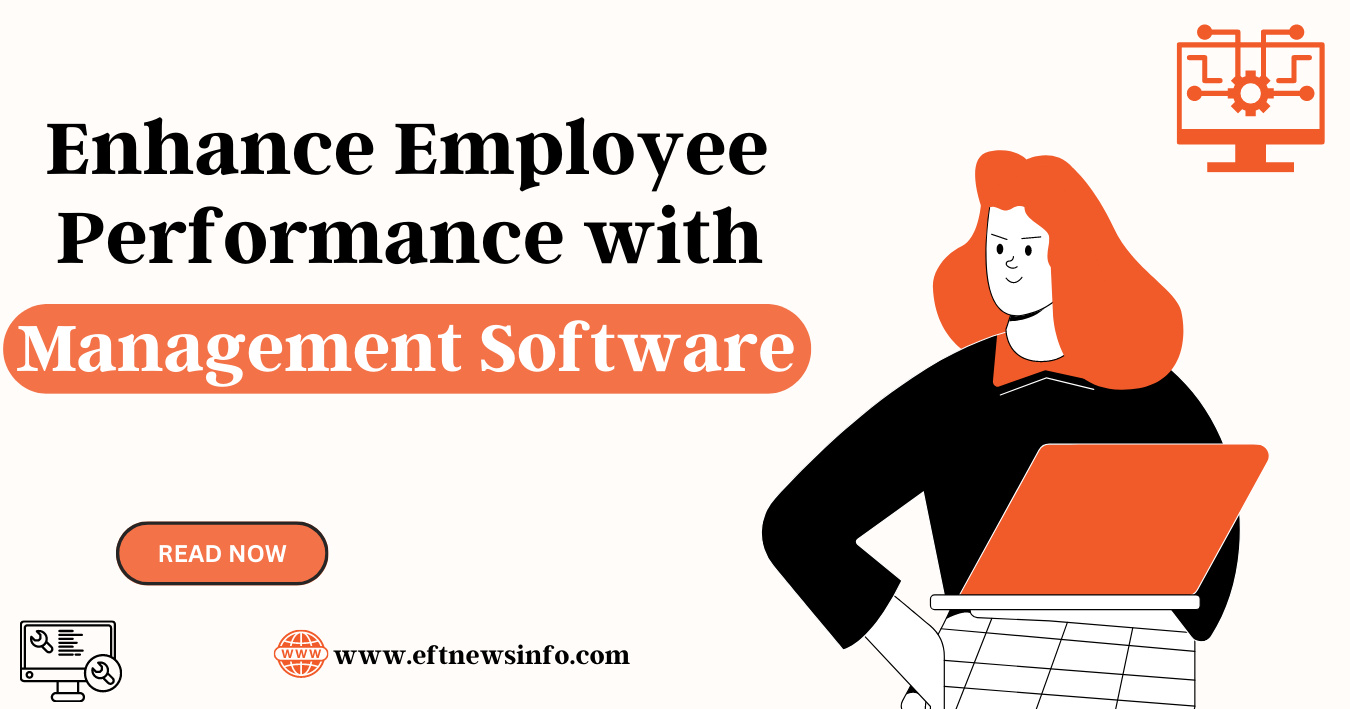Employee Management Software || In today’s fast-paced business environment, organizations are constantly seeking ways to enhance their operations and improve employee performance. One effective approach is to implement management software that streamlines various aspects of employee management, such as task assignment, performance tracking, and collaboration. This article explores the benefits of using management software to enhance employee performance and productivity.
Table of Contents
Introduction
In today’s digital era, management software has emerged as a powerful tool for organizations to optimize their operations and enhance employee performance. By automating various tasks and providing valuable insights, management software enables businesses to streamline processes, boost productivity, and achieve better results. Let’s explore how management software can positively impact employee performance.
Streamlining Task Assignment

One key feature of management software is its ability to streamline task assignment processes. Through intuitive interfaces and centralized platforms, managers can easily allocate tasks to employees, ensuring clarity of responsibilities and deadlines. This eliminates confusion, reduces inefficiencies, and enables employees to focus on their assigned tasks, leading to improved performance.
Efficient Performance Tracking

Management software provides a comprehensive platform to track and monitor employee performance effectively. It allows managers to set performance goals, track progress, and provide timely feedback. By having access to real-time performance data, managers can identify areas of improvement, recognize top performers, and provide targeted support where needed. This promotes a culture of continuous growth and motivates employees to perform at their best.
Enhancing Collaboration and Communication
Effective collaboration and communication are essential for achieving organizational goals. Management software facilitates seamless collaboration by providing centralized communication channels, document sharing capabilities, and project management tools. Employees can easily collaborate on tasks, share ideas, and provide feedback, leading to improved teamwork, creativity, and overall performance.
Improving Time Management
Time management is crucial for employee productivity. Management software offers features such as time tracking, scheduling, and prioritization tools that help employees manage their time efficiently. By organizing tasks, setting reminders, and identifying time-wasting activities, employees can optimize their productivity, meet deadlines, and deliver high-quality work consistently.
Facilitating Remote Work
In the era of remote work, management software plays a vital role in enabling teams to collaborate effectively regardless of their physical location. With features like virtual meetings, file sharing, and task management, employees can seamlessly work together, ensuring smooth workflows and maintaining high performance levels, even when working remotely.
Boosting Employee Engagement
Employee engagement is essential for productivity and retention. Management software offers features like employee recognition, surveys, and feedback mechanisms that foster a positive work environment. By promoting transparent communication, recognizing achievements, and addressing concerns, management software boosts employee engagement and satisfaction, leading to improved performance.
Enhancing Decision-Making
Data-driven decision-making is crucial for effective management. Management software provides valuable insights and analytics that enable managers to make informed decisions. By accessing real-time performance data, managers can identify trends, evaluate strategies, and make adjustments to enhance employee performance and align it with organizational goals.
Ensuring Data Security and Privacy
With the increasing reliance on digital systems, data security and privacy have become critical concerns for organizations. Management software offers robust security measures, including data encryption, user access controls, and regular backups, to protect sensitive employee information. By prioritizing data security and privacy, organizations can build trust among employees, ensuring their information is safeguarded, and ultimately enhancing employee performance.
Integrating with Existing Systems
Compatibility with existing systems is essential when implementing management software. The software should seamlessly integrate with other tools and platforms used by the organization. This allows for the smooth transfer of data, eliminates duplication of efforts, and ensures a cohesive workflow. By integrating with existing systems, management software enhances efficiency, reduces manual work, and optimizes employee performance.
Training and Onboarding Support
Implementing new software requires adequate training and onboarding support. Effective management software provides user-friendly interfaces and offers training resources, tutorials, and customer support to assist employees in adapting to the new system. By investing in proper training and onboarding, organizations can maximize the potential of the management software, empowering employees to utilize its features effectively and improve their performance.
Scalability and Customizability
As organizations grow and evolve, their management needs change. Management software should be scalable and customizable to accommodate the changing requirements of the organization. Whether it’s adding new features, adapting workflows, or accommodating a larger workforce, the software should be flexible enough to support organizational growth. Scalable and customizable management software ensures that employee performance remains optimized, regardless of the organization’s size or future changes.
Cost-Effectiveness
Investing in management software should be seen as a long-term cost-effective solution. While there may be upfront costs associated with implementation and training, the benefits and efficiencies gained in employee performance justify the investment. By automating processes, reducing errors, and improving productivity, management software ultimately leads to cost savings and a positive return on investment.
Measuring Employee Performance
An essential aspect of enhancing employee performance is the ability to measure and evaluate their progress. Management software provides the tools and metrics needed to assess individual and team performance accurately. By tracking key performance indicators, managers can identify strengths, address weaknesses, and provide targeted coaching or training to enhance employee performance continuously.
Conclusion
In today’s competitive business landscape, organizations need to prioritize employee performance to achieve their goals. Implementing management software can significantly enhance employee performance by streamlining task assignment, facilitating performance tracking, improving collaboration and communication, boosting time management, enabling remote work, promoting employee engagement, enhancing decision-making, ensuring data security and privacy, integrating with existing systems, providing training and onboarding support, offering scalability and customizability, and delivering cost-effective solutions. By harnessing the power of management software, organizations can unlock their employees’ full potential, drive productivity, and stay ahead in the market.
FAQs
- Q: How does management software enhance employee performance? A: Management software enhances employee performance by streamlining tasks, improving communication, providing performance tracking, and facilitating collaboration.
- Q: Is management software suitable for remote teams? A: Yes, management software is ideal for remote teams as it enables seamless collaboration, communication, and task management regardless of location.
- Q: Can management software be customized according to specific organizational needs? A: Yes, management software can be customized to align with specific organizational workflows, processes, and requirements.
- Q: Is training provided for employees when implementing management software? A: Yes, management software typically offers training resources, tutorials, and customer support to assist employees in effectively using the system.
- Q: How can management software improve decision-making? A: Management software provides valuable insights and analytics, enabling data-driven decision-making to optimize employee performance and align it with organizational goals.

